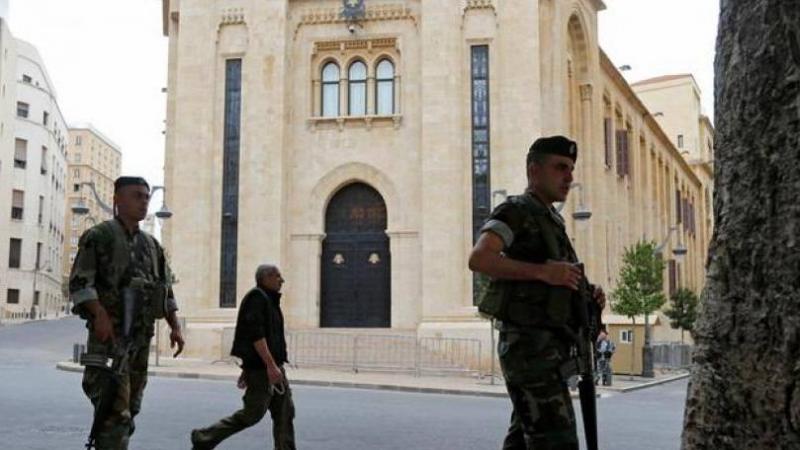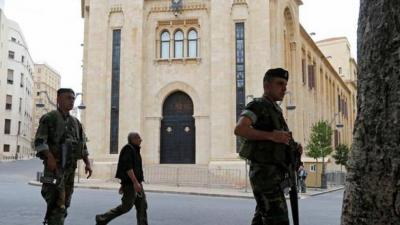The Lebanese Parliament is holding its last session of the year today to elect a president for the republic. It is believed that this session will be similar to previous ones, paving the way for a new phase next year where two scenarios will contend: the first is prolonging the vacancy due to a lack of initiatives, failure to reach consensus, and refusal to engage in dialogue; the second is imposing a status quo by electing a president based on the required numerical majority, under international pressure to implement reforms needed for Lebanon to emerge from its crises.
Today marks the tenth session of parliament to elect a president, with low hopes that it will lead to a breakthrough regarding the presidential file, particularly after the two largest Christian blocs in the council, the "Lebanese Forces" and the "Free Patriotic Movement," rejected discussing this issue and the parliament's continued inability to secure a numerical majority for any single candidate. This includes MP Michel Moawad, supported by the "Lebanese Forces," "Progressive Socialist Party," and other forces, or the head of the "Marda" movement, Suleiman Franjieh, whose election is primarily pushed by "Hezbollah" and "Amal Movement."
A notable statement came from Deputy Speaker Elias Bou Saab after his visit to Parliament Speaker Nabih Berri yesterday, where he indicated that "what he sensed from President Berri is that the situation will not be left unresolved indefinitely," signaling that the scene post-New Year will be different. Bou Saab stated, "President Nabih Berri has always been ready to accept the call for a dialogue table; because we all know that ultimately, without dialogue, we will not be able to reach an agreement on electing a president." He added, "It is clear that there are factions not convinced by the method of the dialogue sessions, hence they apologized or expressed their intention not to attend, while others were placing conditions on how the dialogue table should be conducted. This subject does not lead to convening dialogue, and therefore I see that there is no possibility for dialogue for the remainder of this year, and I do not believe that will happen."
Bou Saab reiterated that "we cannot exit the crisis we are in except by returning to serious dialogue among all parties. The Speaker of the Parliament is of course primarily responsible for electing the president of the republic in the council, as the council is the one that elects the president." He noted, "What I sensed from President Berri is that the situation will not be left unresolved indefinitely, implying that the effort to elect a president has a limited time to reach an understanding and consultation. However, after this time, there will be different and more serious work to elect the president beginning next year," pointing out that "the disagreement between parties remains."
Parliamentary sources observing the recent developments interpreted Bou Saab's declaration that the situation will not remain unresolved indefinitely as a sign that "the scenario of imposing a status quo may be possible," contrary to the previous period when the largest Christian political forces refrained from consensus and participation in dialogue. The sources explained to "Asharq Al-Awsat" that the hypothesis of not vacating the parliament hall after the first round of voting "can be applied, such that a second session is held with a two-thirds majority, followed by voting among the deputies for their preferred candidates, allowing the one with the highest votes to win." The sources stated that the political forces "cannot keep the vacancy lasting indefinitely, especially under international pressures pushing for implementing reforms and placing Lebanon on a recovery track."
The international community, according to the sources, "is not concerned with the proposed presidential names, recognizing that there will be no change in the structure of the Lebanese system, but is insistent on electing a president as swiftly as possible to initiate the implementation of reforms and recovery plans for the country from the ongoing crises," noting that the international community "is interested in forming a quick government to implement reforms, including financial reform, negotiations with the International Monetary Fund, judicial reform, appointments, and establishing regulatory bodies for vital sectors, along with an opportunity for positive investment based on boundary demarcation achievements."
However, this scenario is not agreed upon by MP Qablan Qablan from the "Development and Liberation Bloc," who stated that the refusal to engage in dialogue "will lead to prolonging the period of vacancy at the presidency." Qablan told "Asharq Al-Awsat": "As long as there is no dialogue, there is no agreement on a single name, meaning the entitlement is postponed while no party can secure a majority of 65 votes to elect a president in the second round."
He added, "In light of the exceptional circumstances the country is going through, requiring consensus at all levels, it is not possible to elect a president through a de facto solution or numerical majority. Rather, consensus must be achieved outside the parliament hall, allowing everyone to enter to implement the agreement," pointing out that all Lebanese presidents were elected based on this principle. He continued, "Today, the two largest Christian blocs, which represent the Christian street and are significant on the national level, have not agreed on a president, have not discussed it, and have rejected the dialogue called by President Berri, indicating that they have no desire to bring the issue of ending the presidential vacancy into the realm of implementation," questioning: "Why did they make agreements in the previous session in 2016 while they refuse to do so now?"
Additionally, MP Elias Hankash of the "Kataeb" bloc commented on the lack of a dialogue session at the request of Speaker Nabih Berri, indicating that no one is willing to replace presidential election sessions with dialogue sessions. He added, "The Kataeb Party does not reject dialogue, but there are prerequisites that should be present for it to succeed." Hankash noted in a radio interview that replacing sessions through endless dialogue "is an extension of the vacancy and the ongoing bleeding; therefore, the invitation should be limited to the presidential file, should take place within institutions, and should not replace election sessions."




